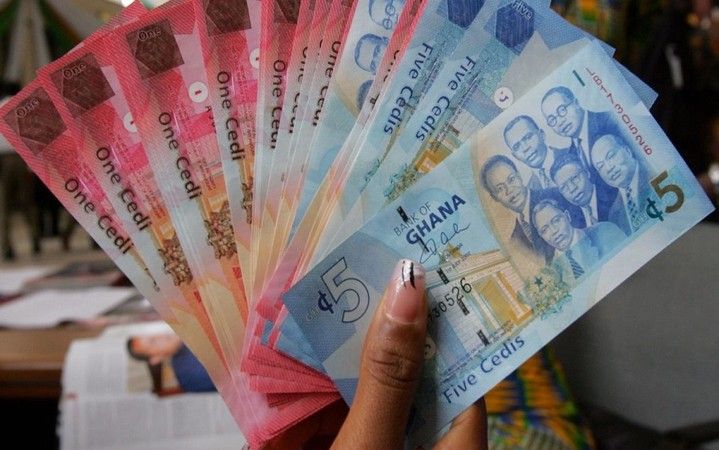
Introduction
Africa is at the forefront of financial innovation, with stablecoins emerging as a reliable bridge between traditional finance and the blockchain economy. The promise of fast, affordable, and borderless payments is no longer a theory; it’s becoming a reality.
In Ghana, the need for change is even more urgent. The country has one of the highest remittance inflows in Sub-Saharan Africa, with remittance inflows in 2024 reaching $4.6 billion. This significant increase of 91% was driven by proactive government policies engaging the diaspora and supporting their investment and financial literacy. Add to that a highly active mobile money ecosystem, a young tech-savvy population, and the government’s push toward a cash-lite economy, and Ghana is primed to be a leader in stablecoin adoption.
But here’s the catch: building a stablecoin wallet from scratch is not only costly but also time-consuming. From setting up secure custody, integrating blockchains, connecting to mobile money systems, and ensuring compliance with the Bank of Ghana’s regulations can take months, sometimes years. During that time, competitors may already have entered the market.
The good news is that entrepreneurs don’t need to build everything from the ground up. With platforms like Yogupay, fintechs and startups can leverage plug-and-play wallet infrastructure to launch in weeks, not months, while staying compliant and focusing on customer acquisition & experience.
This is where the game changes. Instead of reinventing the wheel, fintechs can plug into ready-made wallet infrastructure solutions, with built-in security, compliance, and fiat on/off ramps. That means you can focus less on backend headaches and more on what truly matters: delivering value to your customers and scaling your business.
In this article, we’ll explore why Ghana is the perfect market for stablecoin wallets, the challenges of going it alone, and how Yogupay makes it possible to launch quickly, securely, and cost-effectively.
Understanding the Stablecoin Market in Ghana
Cryptocurrency adoption in Ghana has been steadily increasing, supported by a relatively open regulatory environment and a keen interest in digital financial services. Stablecoins such as USDC, USDT, and DAI have gained popularity because they hold a stable value pegged to fiat currencies, making them ideal for everyday transactions and cross-border remittances. For Ghanaian users, stablecoins provide a means to avoid the volatility typical of other cryptocurrencies while benefiting from blockchain advantages like speed and transparency.

Key Components of a Stablecoin Wallet
Launching a successful wallet requires addressing essential elements:
- A user-friendly interface that simplifies sending, receiving, and storing stablecoins.
- Robust security measures to protect users’ funds and sensitive information.
- Integration with payment gateways and on/off ramps for easy conversion between stablecoins and the Ghanaian cedi or other currencies.
The Growing Demand for Stablecoin Wallets in Ghana
Ghana’s financial landscape is shifting, and several key factors are fuelling the demand for stablecoin wallets:
- Remittances are a lifeline: According to the World Bank, Ghana receives billions of dollars annually in remittances. Traditional money transfer services charge high fees, sometimes up to 8–10% per transaction. Stablecoins drastically reduce these costs.
- Currency volatility: The Ghanaian cedi has faced periods of significant depreciation. Stablecoins, often pegged to the US dollar, provide a store of value that helps both individuals and businesses hedge against inflation.
- Digital-first economy: Mobile money adoption in Ghana is among the highest in Africa, with millions of users relying on MTN Mobile Money, Vodafone Cash, and AirtelTigo Money. Adding stablecoin rails enhances this ecosystem by enabling borderless payments.
- Rise of freelancers and SMEs: Ghana’s growing digital workforce needs a way to receive international payments quickly without losing income to high fees. Stablecoins and wallets make this possible.
Together, these trends create a perfect environment for stablecoin wallets to thrive.
Why Building from Scratch is So Difficult
At first glance, it may seem straightforward to create a stablecoin wallet: integrate a blockchain, build an app, and start onboarding users. But in reality, launching a wallet in Ghana from scratch comes with serious challenges:
- Time-Intensive Development
- Building blockchain infrastructure, ensuring custody security, and coding user-friendly interfaces can take 6–12 months before even hitting the market.
- Regulatory Compliance
- Ghana’s financial regulators require strong KYC (Know Your Customer) and AML (Anti-Money Laundering) systems. Implementing these correctly requires both technical and legal expertise.
- Fiat Integration Barriers
- To make wallets practical, you need on-ramp and off-ramp solutions (linking stablecoins to mobile money and banks). Negotiating and integrating with these providers takes time.
- Security Risks
- Wallet hacks and exploits can destroy trust overnight. Building battle-tested infrastructure from scratch is both expensive and risky.
For startups, these barriers can stall innovation and burn through precious resources.
The Shortcut: Ready-Made Wallet Infrastructure
Instead of reinventing the wheel, Ghanaian fintechs can use ready-made infrastructure platforms like Yogupay, which provide white-label wallet solutions and developer APIs.
Here’s why these matters:
- Launch in Weeks, Not Months: APIs pre-built for stablecoin custody, transfers, and fiat integration.
- Lower Costs: Avoid millions in infrastructure and compliance expenses.
- Secure & Compliant: Integrates bank-grade security and KYC/AML frameworks, reducing regulatory risks.
- Seamless Fiat On/Off Ramps: Connect stablecoins directly to mobile money services and local bank accounts.
- Customizable Branding: White-label wallets allow you to launch under your own brand while running on the platform provider’s backend.
- Scalable for Growth: Whether you start small or scale across West Africa, the infrastructure grows with you.
This approach empowers startups to focus on user acquisition, partnerships, and customer experience, rather than wasting months on backend infrastructure.

Step-by-Step Guide to Launching a Stablecoin Wallet in Ghana
- Define Your Use Case
- Decide whether your wallet will focus on remittances, merchant payments, P2P transfers, or savings and investments. Example: A startup could target Ghanaian freelancers who need to receive stablecoin payments from international clients.
- Choose an Infrastructure Partner
- Select a provider that ensures high uptime, local compliance, and scalable solutions.
- Yogupay provides plug-and-play APIs that handle everything from wallet management to compliance checks.
- Integrate Fiat On/Off-Ramps
- For mass adoption, users need to cash in and cash out easily. Choose a platform that already integrates with Ghana’s mobile money ecosystem, meaning stablecoins can move seamlessly between blockchain wallets and MoMo accounts.
- Customize Branding & UX
- White-label options let you personalize the look and feel of your app. Focus on simplicity, since most users are new to crypto.
- Go Live & Scale
- Start with a pilot group, for example, 1,000 freelancers or a network of merchants. Gather feedback, improve features, and then expand to new segments such as SMEs, importers, or remittance senders abroad.
Compliance and Regulation in Ghana
When launching a stablecoin wallet in Ghana, understanding the regulatory environment is just as important as having the right technology. While blockchain innovation is accelerating, Ghana’s financial regulators are cautious, ensuring that new entrants operate safely and transparently.
Here are the key compliance factors to consider:
1. Bank of Ghana’s Stance on Crypto
- The Bank of Ghana (BoG) does not currently recognize cryptocurrencies as legal tender, but it allows innovation under a regulated framework. BoG has cautioned the public against unlicensed crypto platforms, highlighting the importance of operating within approved payment guidelines.
- At the same time, BoG is piloting the e-Cedi, a central bank digital currency (CBDC), showing that it is open to blockchain-based financial innovation.
2. Payment Systems and Services Act (2019)
- This act regulates electronic money issuers, payment service providers, and fintechs in Ghana. Any company offering wallet services (whether fiat or stablecoin-linked) must comply with licensing requirements, reporting obligations, and consumer protection laws. Non-compliance may result in penalties or the suspension of operations.
3. KYC (Know Your Customer) and AML (Anti-Money Laundering) Standards
- Wallet providers are expected to implement robust identity verification processes to prevent fraud and money laundering. AML laws in Ghana require companies to monitor suspicious transactions and report them to the Financial Intelligence Centre. Without these measures, companies risk regulatory crackdowns and loss of user trust.
4. Cross-Border Remittance Rules
- Because many stablecoin wallets are used for international transfers, companies must also align with rules governing foreign exchange and remittances. The Bank of Ghana (BoG) requires reporting on inflows/outflows, and unauthorized cross-border transfers could attract scrutiny.
5. Consumer Protection & Trust
- Beyond technical compliance, Ghanaian consumers expect secure, transparent, and user-friendly solutions. Meaning clear terms of use, transparent fees, and strong data protection (aligned with Ghana’s Data Protection Act) are critical for adoption.
How Yogupay Helps with Compliance
Instead of navigating these complexities alone, startups can rely on Yogupay’s infrastructure, which is designed to meet regulatory and security requirements in Ghana and across Africa.
- Built-in KYC/AML: Yogupay integrates global-standard verification systems, helping fintechs onboard customers safely.
- Regulatory Alignment: Yogupay’s solutions are structured to comply with BoG and FIC guidelines, reducing legal risks.
- Transaction Monitoring: Advanced fraud detection tools help spot suspicious activity early.
- Scalable Compliance: As Ghana introduces more specific rules for stablecoins or the e-Cedi, Yogupay can adapt its infrastructure so startups remain compliant without rebuilding their systems.

Future Outlook: Stablecoins and Ghana’s Digital Economy
Ghana is rapidly becoming one of Africa’s most dynamic digital economies. With over 40% of adults actively using mobile money and the government pushing for digital transformation, the stage is set for stablecoins to play a critical role in shaping the financial future. Here’s what lies ahead:
1. Cross-Border Trade and Regional Payments
- Ghana is part of the African Continental Free Trade Area (AfCFTA), headquartered in Accra. Stablecoins could become the preferred settlement tool for cross-border trade within Africa, where local currencies often fluctuate.
- Importers and exporters in Ghana can bypass costly SWIFT transfers and instead settle payments instantly using USDC, USDT, or cUSD, improving cash flow and competitiveness.
Why It Matters: Stablecoin wallets dramatically lower transfer fees, making them ideal for boosting remittance efficiency and real user impact.
2. The e-Cedi CBDC: Timeline & Expectations
- The Bank of Ghana (BoG) completed pilot phases of the e-Cedi, including offline transactions in remote areas, demonstrating early success. A commercial rollout is anticipated by 2025, pending legislative approval, with offline usability and inclusivity prioritized
- Ghana’s approach leans toward a token-based, offline-capable e-Cedi, setting it apart from account-based CBDC models. BoG’s e-Cedi hackathon mobilized developers via EmTECH and Hedera DLT, emphasizing innovation in merchant payments, agriculture, and government services.
3. Financial Inclusion for the Unbanked
- Financial inclusion has soared from 41% in 2010 to 95% in recent years, the highest in Sub-Saharan Africa. Despite mobile money’s success, millions of Ghanaians remain unbanked, especially in rural areas. Stablecoin wallets linked to mobile money accounts could bring them into the global financial system
- Plus, the Ghana Card, a biometric national ID, is held by 88% of adults, enabling streamlined KYC verification, a critical foundation for compliant wallets
Why It Matters: With robust ID infrastructure and high financial inclusion, Ghana is primed for digital wallet adoption at scale. Yogupay’s compliance-ready setup aligns perfectly with this environment
4. Growth of Web3 Ecosystem in Ghana
- Ghana has a young, tech-savvy population, with startups increasingly exploring NFTs, DeFi, and blockchain-based lending. Stablecoin wallets will become the entry point for this ecosystem.
- Fintechs that launch wallets now can position themselves as gateways to Web3 finance, offering services like crypto savings, lending, or even tokenized investments in the future.
5. Remittances Will Become Borderless
- Today, Ghanaians abroad send billions in remittances home. In the near future, these flows will shift heavily to stablecoins, cutting out intermediaries.
- With digital wallets, recipients won’t need to understand blockchain; they’ll simply receive stablecoins and cash out instantly to mobile money. This makes Ghana a blueprint for how crypto-powered remittances can scale across Africa.
6. SME and Merchant Adoption
- SMEs are the backbone of Ghana’s economy. As they trade regionally and globally, stablecoin wallets will enable them to accept payments in a stable, borderless currency without waiting days for bank settlement.
- Some APIs will allow wallets to be extended to merchant tools, POS systems, and e-commerce integrations, opening stablecoin payments to everyday businesses.
7. Market Dynamics & Infrastructure Landscape
- Ghana’s telecom sector, pivotal for mobile money, is growing steadily, backed by strong investments (e.g., MTN’s $1 billion upgrade plans). Solutions like e-zwich, Ghana’s national biometric-linked smart card payment system, underscore the country’s appetite for secure, inclusive digital payments
Why It Matters: With robust telecom infrastructure and public acceptance of biometric payment systems, stablecoin wallets face fewer adoption hurdles
If current trends continue, Ghana has the potential to become a regional hub for stablecoin innovation. Its strong mobile money culture, active fintech ecosystem, and leadership in digital currency experimentation (with the e-Cedi) position it as a testbed for Africa’s digital payments revolution. Startups that leverage ready-made infrastructure like Yogupay won’t just be solving today’s payment challenges; they’ll be laying the foundation for the future of money in Africa.

Conclusion
Stablecoins are no longer a distant concept; they’re already transforming how Ghanaians send, receive, and store money. With remittances soaring, financial inclusion at record levels, and the Bank of Ghana preparing for the e-Cedi, the digital payments landscape is evolving faster than ever.
But here’s the reality: time-to-market is everything. Launching a stablecoin wallet in Ghana doesn’t have to be a lengthy or complex process. While your competitors spend months or even years building infrastructure, you could already be live, onboarding customers, and generating revenue.
By leveraging existing solutions such as the plug-and-play wallet infrastructure like Yogupay, partnering strategically, and adhering to compliance, entrepreneurs can bring competitive wallets to the market rapidly. This approach not only saves time but positions businesses to serve Ghana’s growing digital finance ecosystem better. For those interested in exploring this promising frontier, now is the time to act boldly and build wisely.
Leveraging an already built-in infrastructure, you skip the costly, risky build phase and focus directly on:
- Lowering remittance costs for millions of Ghanaians.
- Helping SMEs and merchants accept global payments without waiting days for bank transfers.
- Offering freelancers and gig workers faster ways to get paid internationally.
- Preparing for the future of money by supporting both stablecoins and the upcoming e-Cedi.
The opportunity in Ghana is enormous: with $4.6 billion in remittances in 2024, 95% financial inclusion, and a tech-savvy young population, the time to act is now.
Whether you’re a fintech startup, a mobile money provider, a remittance business, or an entrepreneur exploring Web3, Yogupay gives you the tools to launch your own stablecoin wallet in weeks, not months.
Don’t let infrastructure hold you back. Let Yogupay handle the heavy lifting, compliance, security, and on/off-ramps so you can focus on growth, users, and impact.
Take the next step today. Connect with Yogupay and start building the future of digital payments in Ghana.